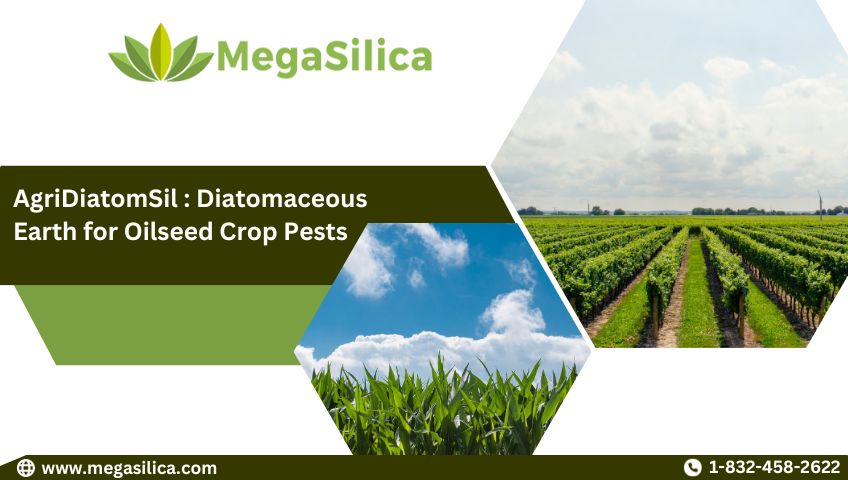An important part of growing oilseeds, which include staple crops like peanuts, cotton, and soybeans, is keeping pests at bay.
AgriDiatomSil is an insecticide derived from Diatomaceous Earth offering a non-chemical alternative for a variety of crops including Oilseed Field crops.
AgriDiatomSil – Combatting Pests Naturally
Pests like corn earworms and boll weevils may wreak havoc on cotton crops and affect the yield. AgriDiatomSil does this by creating an inhospitable environment for these Weevils and Earworms. Thus, this function of insecticide is way better than the chemical-based insecticide. We obtain promising results without hurting our soil and crop habitat.
- Cabbage Looper and Blister Beetles in Peanuts: Peanuts are susceptible to various pests that can affect both foliage and yield. A thorough application of AgriDiatomSil deters these pests due to its abrasive properties.
AgriDiatomSil application on Aphids and Bean Beetles in Soybeans:
The Aphids and Beetles hinder the growth of the plants and cause substantial leaf damage. AgriDiatomSil has the property of sticking to the plant leaves, creating a layer that functions as a physical barrier between pesticides and the plants.
Effective Application for Maximum Protection
Method of application: It requires the growers to mix 4lbs of AgriDiatomSil in 50 gallons of water and then apply that to an acre of crop area. It’s crucial to cover all plant and leaf surfaces for an effective barrier. The reapplication of the solution is recommended after heavy rains or winds for constant protection.
An Eco-Friendly Choice
For the best farming practices, the Farmers/Growers need a non-chemical solution that enriches their crops and soil. What can be a better solution than AgriDiatomSil?
This product offers a holistic approach to pest management while enhancing soil health.
Conclusion
AgriDiatomSil is revolutionizing the agricultural landscape for those cultivating oilseed field crops. It provides a sustainable, effective pest control solution, ensuring that the crops that form the fabric of our agriculture remain protected and productive.

